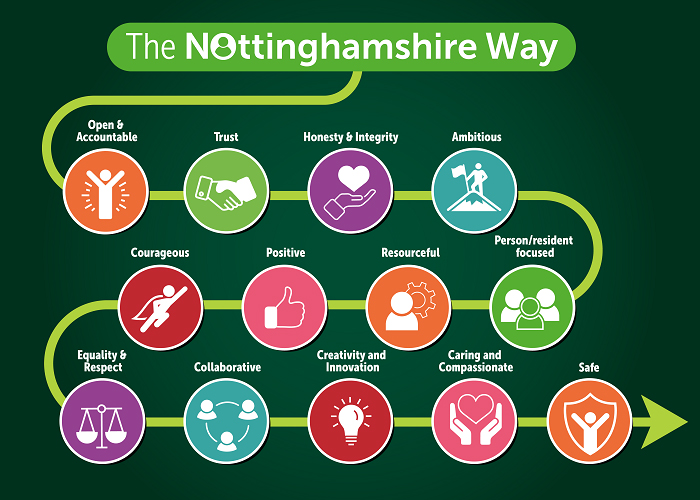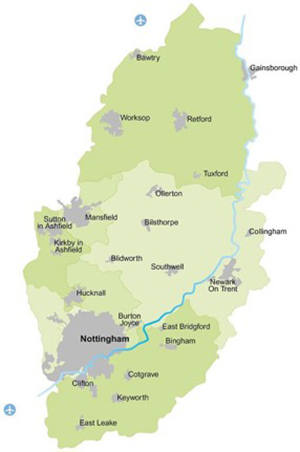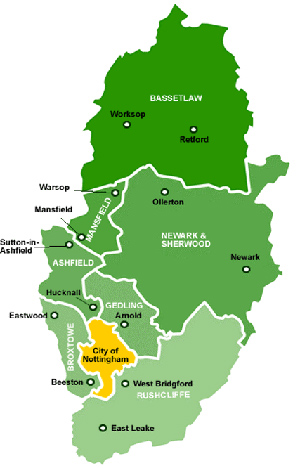We’re Nottinghamshire County Council, and we’re rooted in community
Here at Nottinghamshire County Council, we’re a community – inside and out. We pull together. Empower each other. Respect each other. And support each other. That’s how we make great things happen for our county. We’re all about improving lives, from small, everyday actions to big changes that help our residents through tough times. And we feel our impact everywhere, because it happens right on our doorstep.
Whether we’re working in partnership with local organisations, supporting families, or solving problems as a team, all we do is rooted in a feeling of community. It means everyone feels they belong, that they can thrive, and that no one ever faces anything alone. To put it simply, our council’s just like our county: a great place to be, for everyone.
Our work
We proudly serve a population of 844,494 across the historic county of Nottinghamshire, providing vital services like adult and children’s social care, health, transport, education and more.
Our focus from now until 2031 is on delivering The Nottinghamshire Plan, aimed at creating a healthier, greener and more prosperous future for everyone across our county. Find out more about our commitments.
Why work with us?
Experience the impact of your work all around you and be part of our ambitious future plans. Here are a few reasons why our colleagues love working at Nottinghamshire County Council.
Pride and purpose
We’re proud of our home and its rich, unique history, and of how our work improves lives across the county. We see the impact of our work every day, because it happens right on our doorstep.
Balance and belonging
We respect, value and listen to each other. And we make sure everyone feels welcome, included and supported. The health and wellbeing of our colleagues is a priority, helping everyone have the work life balance they need.
Community and connection
Community is at the heart of everything we do, from the work we do out in Nottinghamshire, to the way we treat each other. Building strong relationships with colleagues and the residents in our communities alike makes our work all the more meaningful.
Aspiration and action
We have a bold vision for our county’s future. Which offers plenty of opportunities to develop our skills and pursue work we’re passionate about. We approach our work with optimism and tackle challenges creatively, together.
Our values
What we do is important, but equally important is how we do it. Our values are at the core of our work, guiding us to ensure we do the right things, in the right way. Our inclusive, people-focused culture is reflected in what we call The Nottinghamshire Way.

Benefits and wellbeing
We offer a range of benefits and wellbeing initiatives that help our people thrive both at work and in their personal lives. Find out more about each benefit by following the links below.
Discounts with local companies
Charitable giving through payroll
Local government pension scheme
Other benefits (season tickets, cycle to work, and more)
More about Nottinghamshire
Our county is rich in history, from captivating myths and legends, to landmark medical discoveries. Discover more about Nottinghamshire.



